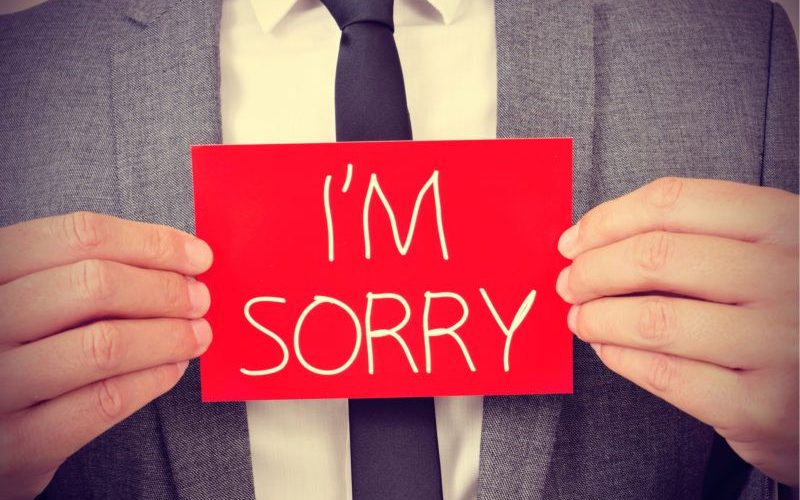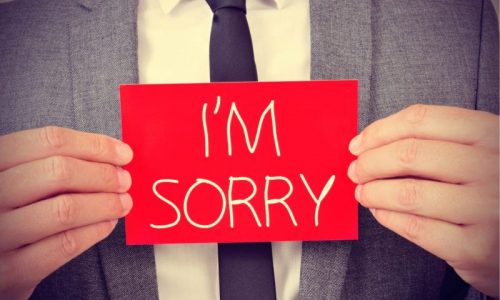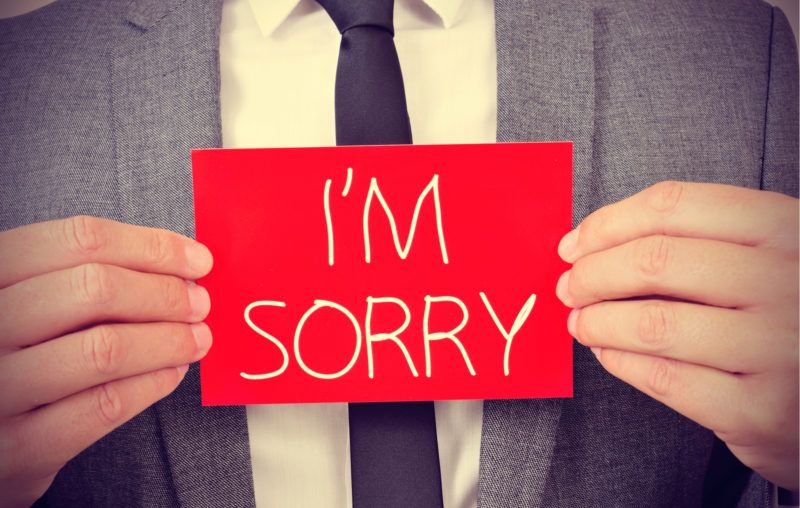
At Least Some Politicians Admit Error (Sort of)


We live in the age of pretend. Governments have behaved more regrettably, ignorantly, arbitrarily, and capriciously than in a generation or two. And yet we don’t see apologies, at least not generally. The failure is all around us, everywhere. Where are the exceptions to the rule? I asked Twitter and here are the answers we’ve come up with.
Norwegian Prime Minister. Erna Solberg went on television in late May to admit that she panicked and imposed a strict lockdown “out of fear. “Was it necessary to close schools? Maybe not. But at the same time, I think it was the right thing to do at the time. Based on the information we had, we took a precautionary strategy.”
That’s not exactly an apology but at least it is an admission of error. She further wondered if she should have gone the way of Sweden. In addition, in making the decision to lock down, she rejected the advice of her own health advisors.
Prime Minister of Pakistan. Imran Khan gets the award for the best and most eloquent apology, which he tweeted out on April 24. “When we sought a total lockdown without thinking about the consequences for the daily wage earners, the street vendors, the labourers, all of whom face poverty & hunger for themselves & their families. May Allah forgive us our sin of neglecting our dispossessed & poor citizens.”
Governor Kristi Noem of South Dakota. This governor has been strong throughout, refusing to issue stay-at-home orders from the start. She stood up to a howling media at every step, and even explained what’s wrong for virus forecasting models in a speech. She sounded like Hayek! One regret she apparently did express was not standing up harder against the Sioux City Mayor who shut down restaurants for a few weeks.
Governor Henry McMaster of South Carolina. He didn’t issue a stay-at-home order and promised not to, and stuck to his word. He has not apologized for the restrictions he did impose but at least he exercised some humility in seeing the limits of government power.
Prime Minister of Russia. Not exactly an apology but Mikhail Mishustin did denounce regional governors for being overzealous in the imposition of lockdowns. Probably this was directed at Chechnya, so there could be political reasons for that.
Indian Prime Minister. Narendra Modi gets some credit for his apology but no credit for saying that the lockdowns were necessary. “I apologize for taking these harsh steps that have caused difficulties in your lives, especially the poor people. I know some of you will be angry with me. But these tough measures were needed to win this battle.” Further: “I seek forgiveness… I am sure you will forgive me that you had to undergo so much trouble. Some people will say what kind of prime minister is this, but these are special circumstances.” Apologizing is one thing; admitting error is another.
Sweden’s Chief Epidemiologist. Anders Tegnell admitted that Sweden could have done better. That caused the press to have a field day distorting his comments. He did not say they should have locked down. He said instead that they should have focussed more on protecting the elderly. ““We continue to believe the strategy is good but then there are always improvements one can make, especially if you look back over time,” he told the news conference. “It would be strange if you gave a different answer to that question.”
Governor of New York. By now you know that Andrew Cuomo has said just about everything but buried in this melange of daily blather he did say: “If you rethought that or had time to analyze that public health strategy, I don’t know that you would say quarantine everyone. I don’t even know that that was the best public health policy…. What we did was we closed everything down. That was our public health strategy. Just close everything, all businesses, old workers, young people, old people, short people, tall people. Every school closed, everything.” Then he immediately forgot he said that and imposed more lockdowns.
President of the United States. There was a glimmer of hope shining through in a brief moment in a May 24 interview with Trump. “Now, would I shut it down again? No, because we understand it now much better. We didn’t know anything about it, it was new, it was fresh.”
But then he immediately followed up with: “I made that decision by myself and it turned out to be a great decision. Hundreds of thousands of lives are saved.”
In the weeks since, his “hundreds of thousands” has turned into three million. Consider his comments on the matter in an interview with the Wall Street Journal:
On coronavirus, I acted very quickly, and I acted early. And they can’t get over it. Number one. Number two. If I didn’t act, we would have had 3 million deaths. And instead we’re at 110,000. And we could be heading to a number that’s, you know, higher than 150,000 to 200,000, it could be ending all now depending on how it goes. We’re doing very well on vaccine. We’re doing very well on therapeutic. But if I didn’t do what we did, we would have anywhere from 1.5 million to 3 million deaths. That would be 20 times more than we’ll end up having, you know? 10 to 30 times more.
Yes, that’s called doubling down, and even owning the lockdowns. What about the data showing that the median infection fatality rate for people under 70 is 0.04%, and zero for children?
You have a certain population… we now know that elderly people, especially elderly people that have a problem such as heart disease, or various…they’re literally listed, okay? They’re literally listed. Diabetes, heart disease, I think would be number one and two. But they’re listed. If they’re elderly, and they have those diseases, it’s not easy. It’s not gonna be pleasant. OK? So we know where we should protect. We had a number of governors that did a very, very poor job with respect to nursing homes, a very, very poor job. And they should have known better.
Thus does he admit what we’ve known since February and March that COVID-19 can be wicked for a particular subset of the population (aged with comorbidities) but hardly a disease at all for most everyone else. Closing the schools, closing everything but essentials, was clearly an epic mistake. The focus should have been on long-term care facilities which were clearly neglected in the frenzy.
How, then, can he talk about three million deaths in the United States without a lockdown? He never explains, but instead keeps digging:
Well, people have to know that, yes, you do. But it’s tiny. You know, it’s a very small percentage. We did the right thing. We closed it down. We closed it down. Expensive. But you can’t put a price on saving millions of lives. We saved millions of lives. You know, a lot of people say herd. Well how did herd work for Sweden? No good. How did herd work for Brazil? No good.
That passage requires, perhaps, a bit of explanation. He is talking about “herd immunity,” which is the idea that after a certain amount of immunity has built up in the population, the virus dies. This is how generations of medical professionals have dealt with viruses: natural immunity and artificial immunity with vaccines, for which there is not one for COVID-19. It’s hard to see how lockdown is a substitute, because, as Knut Wittkowski explains, the slogan “flatten the curve” is nothing but another way of saying prolong the pain. Viruses don’t disappear because you hide from them.
As for Sweden, even the World Health Organization admits that this country did it right but for the neglect of long-term care facilities. Brazil has fared no worse than the United States. As this site has repeatedly documented, there is no statistically significant relationship between COVID-19 deaths and locking down vs staying open.
This virus has bested governments and their power all over the world, and should have by now ended every pretense of the ability of lockdown to control the spread and fatalities. But as we can see, government officials are loath to admit error on any actions much less incompetence in any area of life, even when their actions have impoverished and destroyed the lives of millions. So we can ask: when will the politicians admit their lockdown mistake?